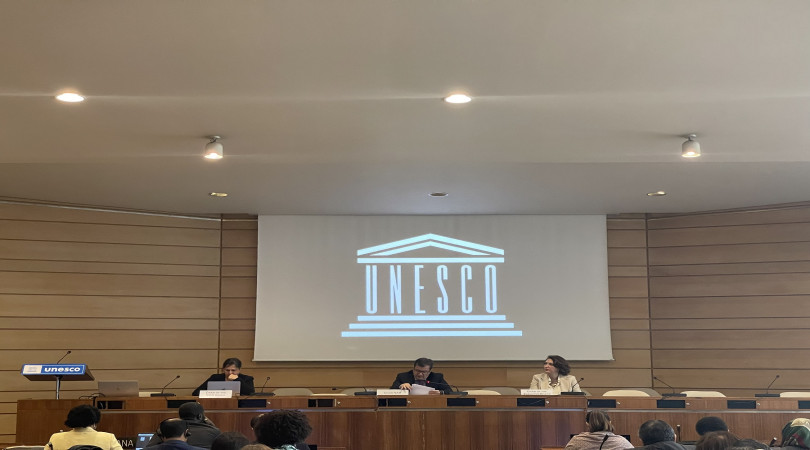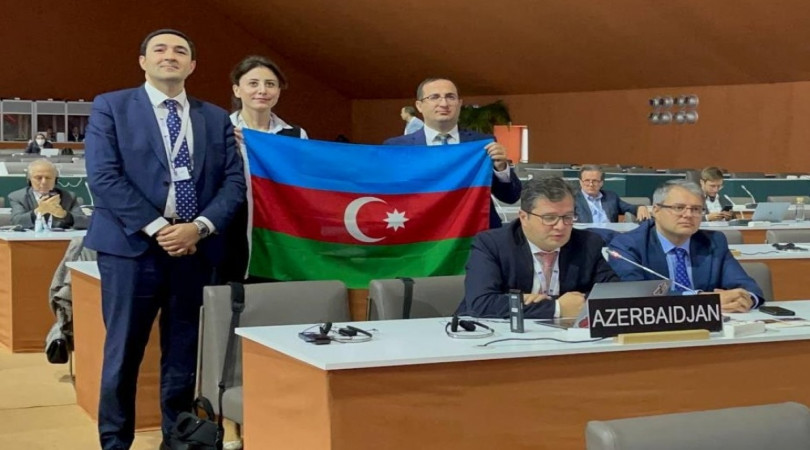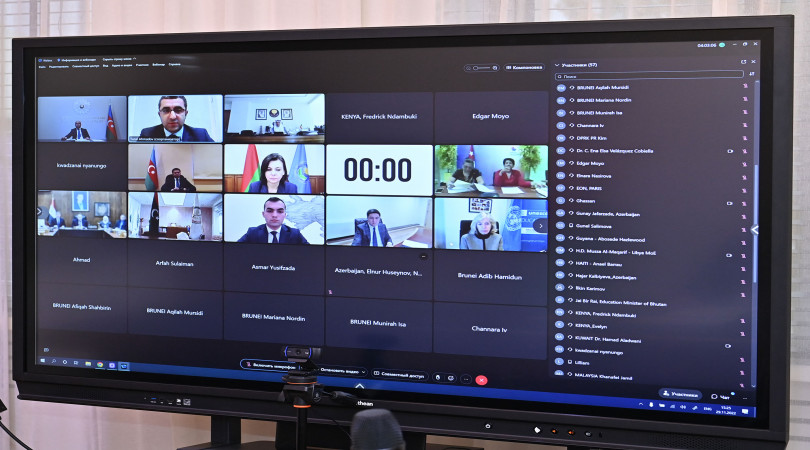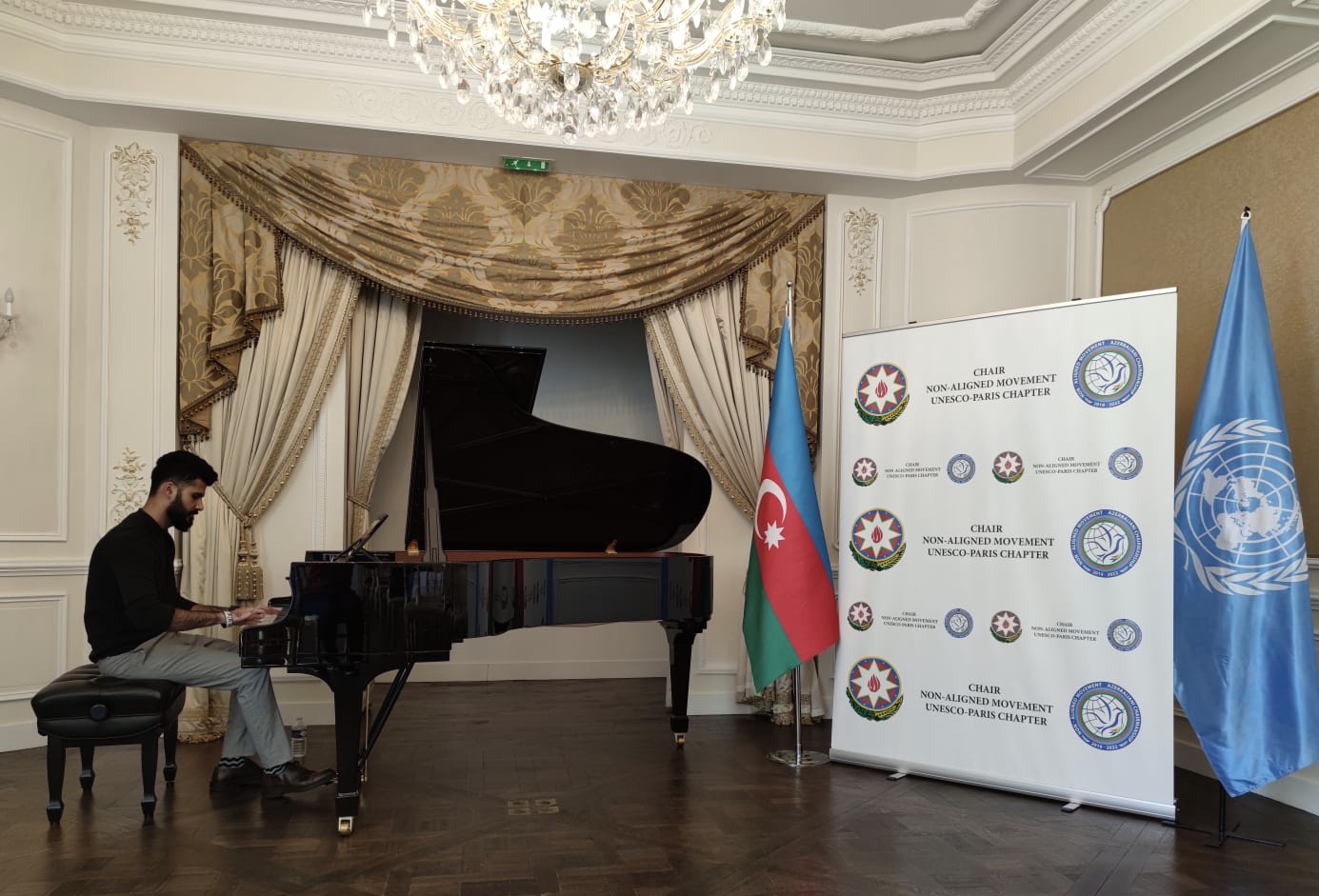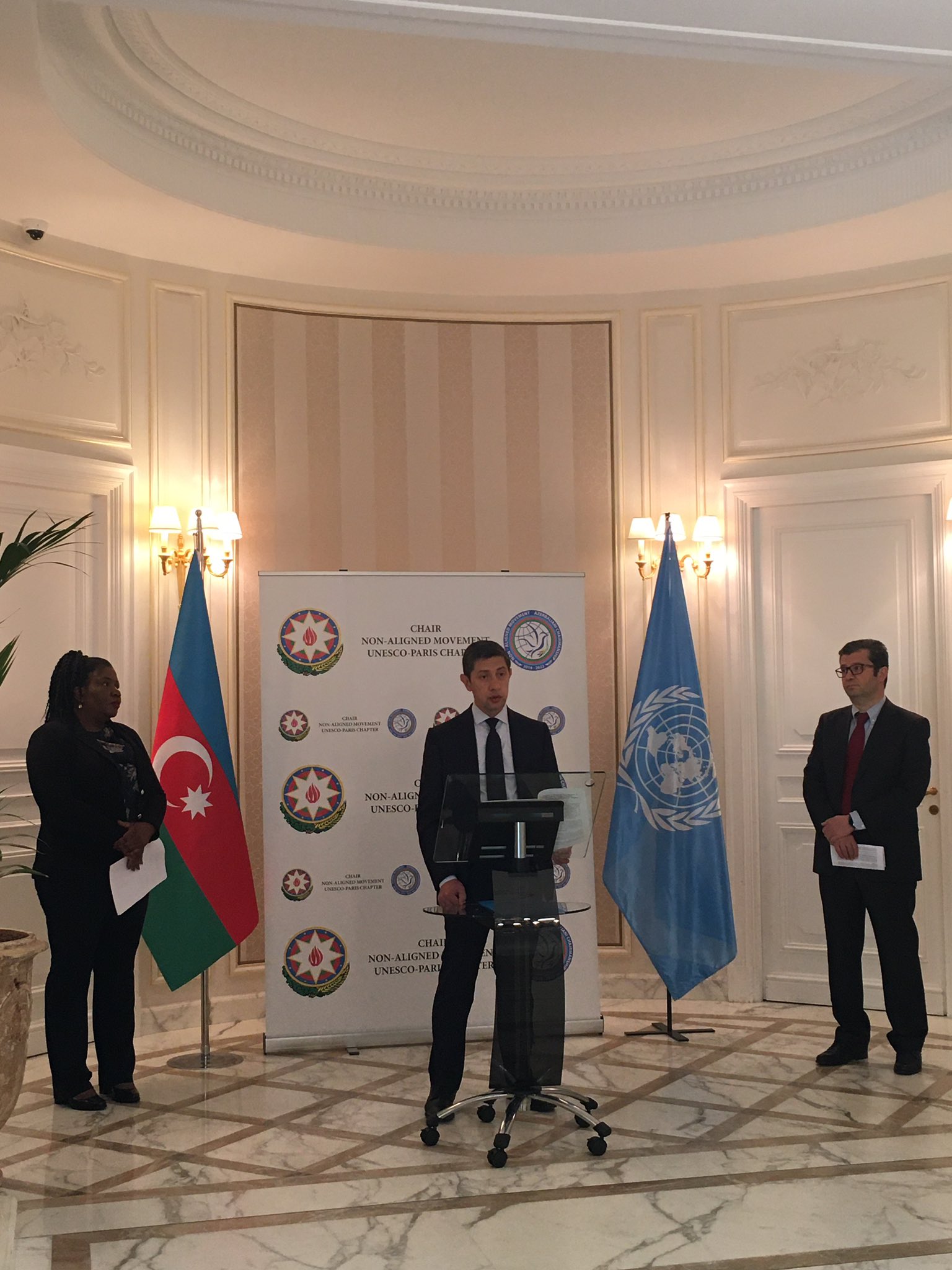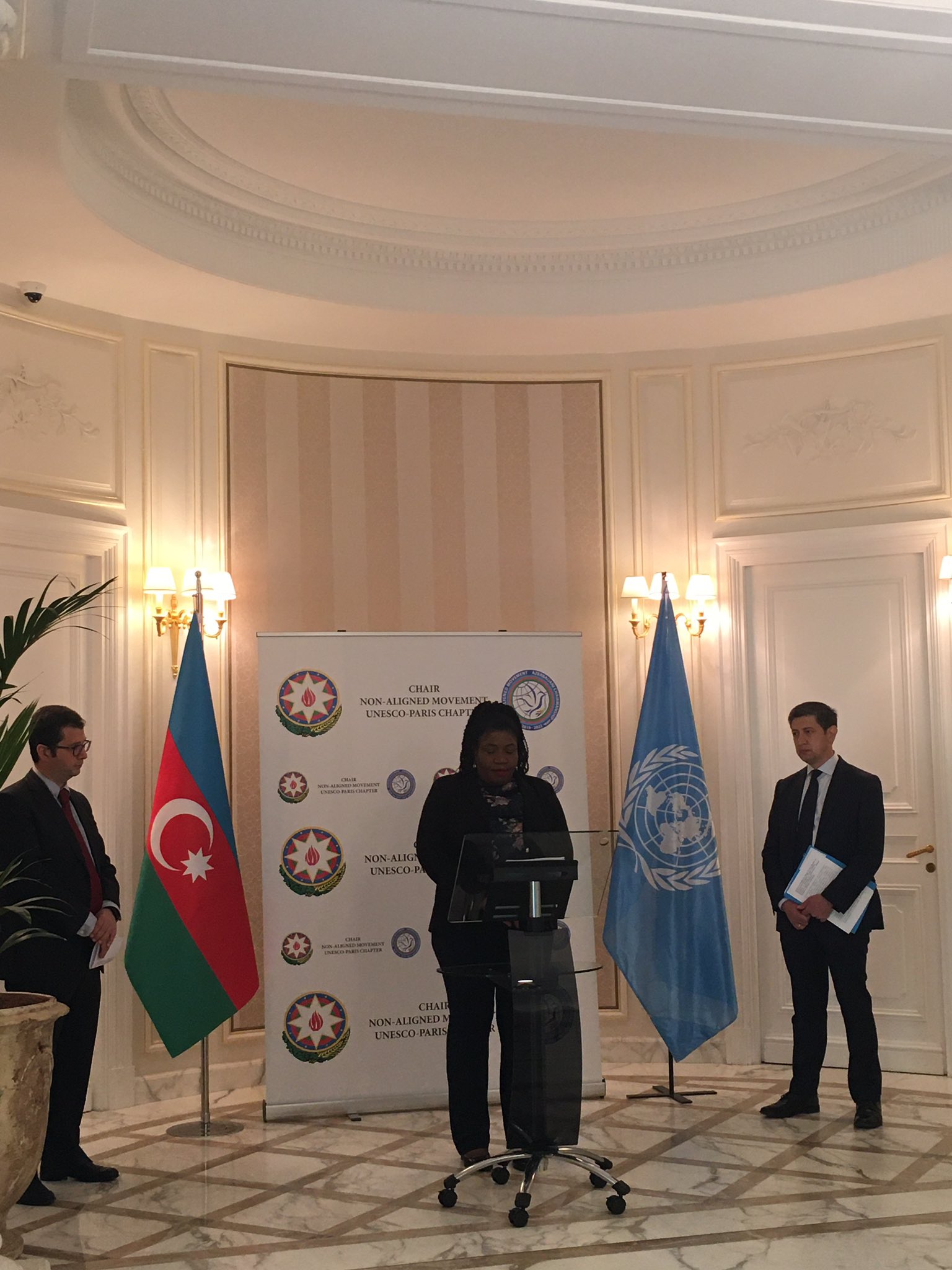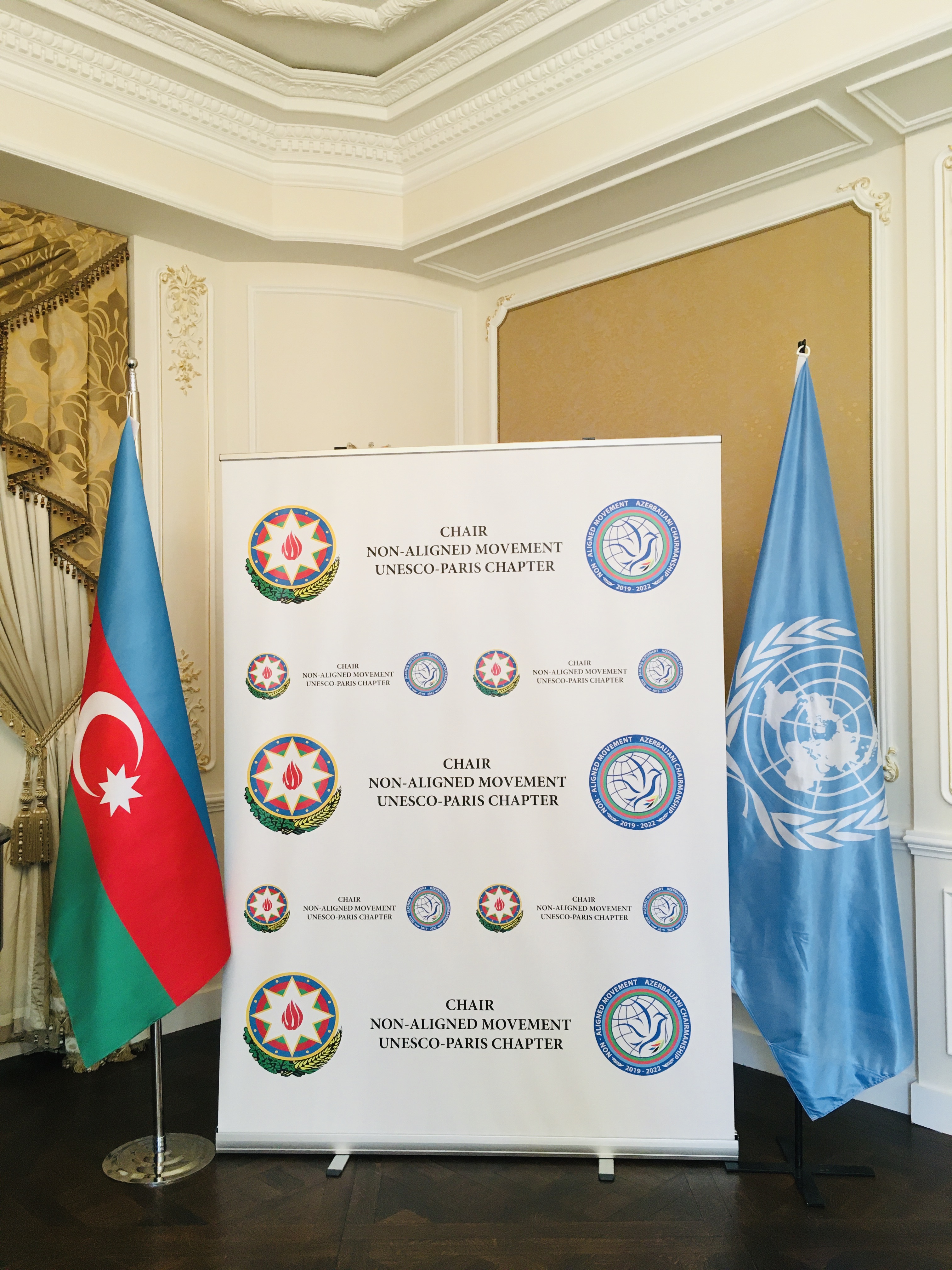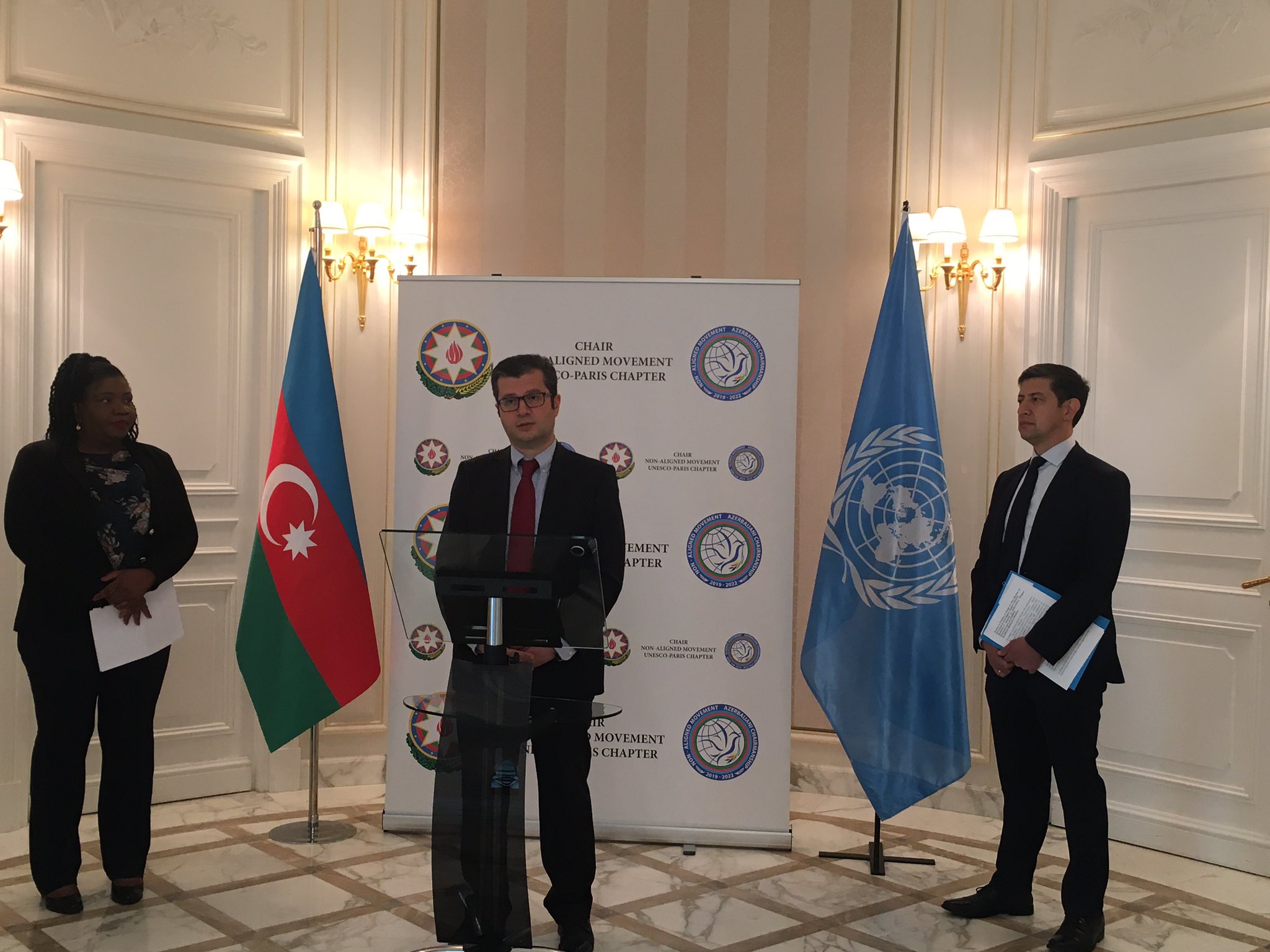The first edition of the Non-Aligned Movement Day
The Non-Aligned Movement/UNESCO Chapter, chaired by Azerbaijan, celebrated the Non-Aligned Movement Day for the first time.
April 24 – International Day of Multilateralism and Diplomacy for Peace was established in 2018 through UNGA resolution, and echoing it and given that the Movement is a bastion of multilateralism, in 2019 the members of the Non-Aligned Movement/UNESCO Chapter, have decided to designate 24 April as also a NAM Day.
This year, the Permanent Delegate of Azerbaijan to UNESCO, Ambassador Elman Abdullayev, the Representatives of the Assistant Director General of UNESCO for Priority Africa and External Relations and the Ambassador of Namibia, Chair of the Africa Group delivered the messages on the occasion of the First edition of NAM Day.
Azerbaijan's Permanent Delegate to UNESCO, Ambassador Elman Abdullayev, spoke about the country's activities under the chairmanship at the Non-Aligned Movement, noting that in accordance with the Bandung Principles, the NAM has played a key role in strengthening international peace and security. He said that these principles are the mainstay of the UN Charter and the 2030 Agenda for Sustainable Development. Since its inception, NAM has strived to preserve and strengthen the values of multilateralism and international cooperation.
The Ambassador told that in order to contribute to global efforts to address the unprecedented universal impact of the pandemic and to find ways to provide rapid, adequate and inclusive assistance to NAM member states, Azerbaijan, as Chair of NAM, convened a special session of the UN General Assembly, as well as the online summit-level meeting of the NAM contact group in response to COVID-19 on the theme "United against COVID-19". As a result of this meeting a working group on the response to COVID-19 developed a database of humanitarian and medical needs and requirements of NAM Member States in their fight against COVID-19. Today, WHO uses the Movement database as one of its reference points for identifying the needs of Movement Member States.
He stressed that we are committed to promoting understanding, and that understanding between pluralism, tolerance, dialogue, as well as religious and cultural diversity, is important for peace and harmony.
In addition, it was noted that the intercultural dialogue and multiculturalism are the political priorities of our country, and as their strong defender, Azerbaijan is ready to share its rich experience in this field with other countries.
The Baku Process, initiated by Azerbaijani President Ilham Aliyev in 2008, has become a globally recognized platform for the promotion of intercultural dialogue. As part of this process, Azerbaijan hosts the biennial Baku Global Forum on Intercultural Dialogue, of which UNESCO is the main partner, along with other UN and international agencies.
Giving information about the goals of the Baku Process, linking the Luanda Biennale with the Baku Process, the Ambassador stressed the importance of creating a peculiar synergy between them. This synergy is an important tool for promoting peace, tolerance, coexistence, respect for human rights, cultural identity and diversity. He noted that it could create a strong dialogue.
It was noted that Azerbaijan supports UNESCO's policy on African Priority, gender equality, women's and girls 'education, and through the Azerbaijan-UNESCO Trust Fund, our country has funded a number of projects in various fields, especially girls' education, gender equality and equity in education.
Representative of the Assistant Director General of UNESCO for Priority Africa and External Relations Bobir Tukhtabayev also spoke about UNESCO's endeavors during the pandemic, as well as the efforts to build back an inclusive and just world, noting that in the framework of the Global Education Coalition launched by UNESCO in response to COVID-19, in 30 African countries the continuity of education was ensured.
Immolatrix Linda Oneugbu, Representative of the Ambassador of Namibia, Chair of the Africa Group, spoke about the important role of NAM in promoting the unity of developing countries, UNESCO's Africa priority, education as an important factor for successful cooperation and the great attention paid by the Movement as well as its Presidency to Africa.
At the end of the speeches, a jazz concert performed by the talented Azerbaijani pianist Etibar Asadli was presented.
The video of the event is available at the following link: https://www.youtube.com/watch?v=jZ8gnd4bRok .

